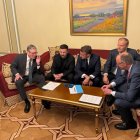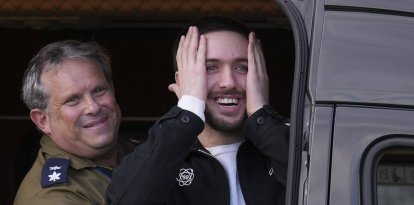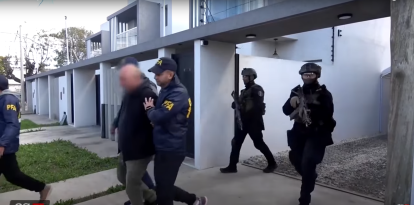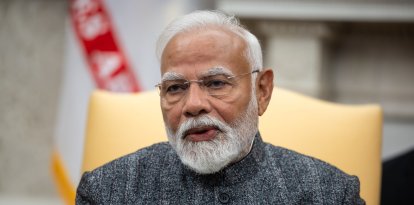Putin wants to start 'direct' negotiations with Ukraine this week
The president's statement follows a final warning from Ukraine and its European allies to Moscow, demanding a "full and unconditional" cessation of hostilities.

Russian President Vladimir Putin
Russian President Vladimir Putin proposed on Sunday to initiate a series of "direct" and "without preconditions" negotiations with Ukraine starting May 15 in Istanbul. The president did not respond to the European ultimatum for an unconditional 30-day ceasefire beginning Monday.
The president's statement comes after Ukraine and its European allies issued a final warning to Moscow for a "full and unconditional" cessation of hostilities, threatening new "massive sanctions" if the Kremlin refuses to comply.
In an early-morning speech, Putin criticized the issuing of "ultimatums" and European "anti-Russian rhetoric," suggesting that any truce should be discussed during the talks, not before.
"Russia is ready for negotiations without preconditions (...) We propose to start them without delay on Thursday, May 15 in Istanbul," the Kremlin chief told reporters.
Reactions to the possible "ceasefire"
U.S. President Donald Trump welcomed what could be "a great day for Russia and Ukraine" and expressed his desire to "continue working" with both nations to end the war. The U.S. had threatened to withdraw from the negotiations if an agreement was not reached soon.
French President Emmanuel Macron, one of the proponents of the ultimatum, took a more critical stance, stating that Putin's proposal is "a first move, but it is not enough," and accused him of trying to "gain time."
The Turkish city previously hosted negotiations between the two sides in 2022, during the early weeks of the conflict triggered by Russia's invasion of Ukraine. However, those talks failed to produce a ceasefire agreement.
Russia frequently cites a range of grievances against Kiev and the West to justify the invasion, calling them the "root conflicts" that must be addressed starting May 15, according to President Putin. These grievances include the alleged "Nazification" of Ukraine, its shift toward the West, and NATO's expansion.
Three-day truce
The Kremlin unilaterally declared a three-day cessation of hostilities to mark the 80th anniversary of the Soviet victory over Nazi Germany, which ended at midnight from Saturday to Sunday.
During this period, Ukraine reported no Russian long-range missile launches against its cities but accused Moscow of hundreds of violations along the front line.
However, Ukraine's air force reported on Sunday that Russia launched more than 100 drones over its territory overnight, shortly after the conclusion of a 72-hour ceasefire unilaterally declared by Russia without prior consultation.
Ukraine had not accepted the Russian truce and instead demanded a 30-day ceasefire in return. In a conversation with Trump last Thursday, Ukrainian President Volodymyr Zelensky said they were ready to negotiate with Moscow under any format.
European ultimatum for war
On Saturday, Zelensky received in Kiev French President Macron, German government head Friedrich Merz, and the prime ministers of Poland and the United Kingdom, Donald Tusk and Keir Starmer.
During the visit, the French leader announced that around twenty of Ukraine's allies, including the United States, had "decided to support a 30-day ceasefire" in the region. He added that if Russia rejects or violates the ceasefire, there would be "massive coordinated actions between Europeans and Americans."
The European leaders' visit to Kiev is a symbolic response to the lavish celebrations in Moscow the day before, marking the 80th anniversary of the victory over Nazi Germany. The event was attended by several foreign leaders, including Chinese President Xi Jinping and the dictators of Cuba and Venezuela, Miguel Diaz-Canel and Nicolas Maduro, respectively.
In Moscow's Red Square, Putin paid tribute on Friday to soldiers deployed in Ukraine for "their bravery" in the worst armed conflict in Europe since World War II, which has claimed tens of thousands of lives in both countries.





























